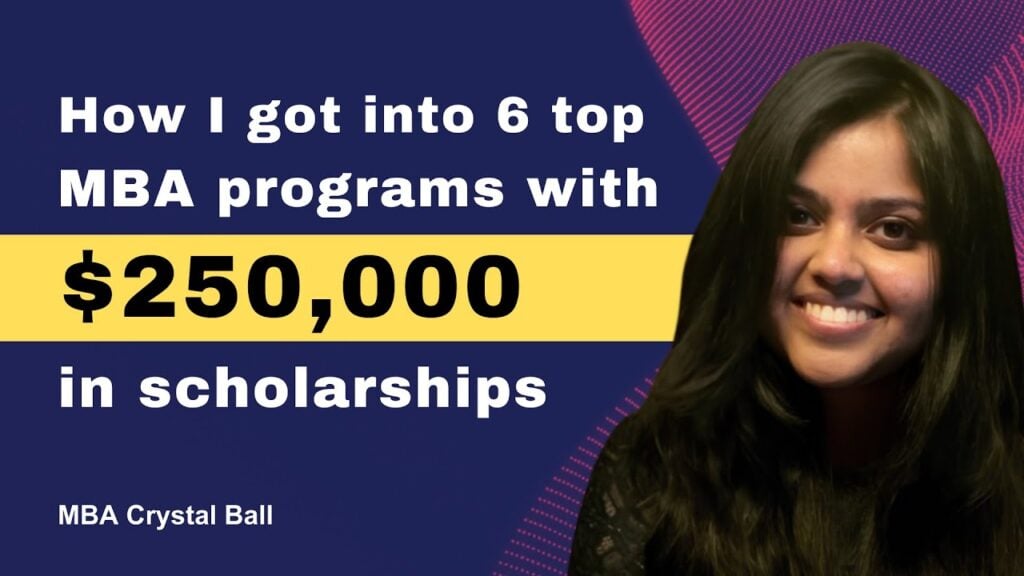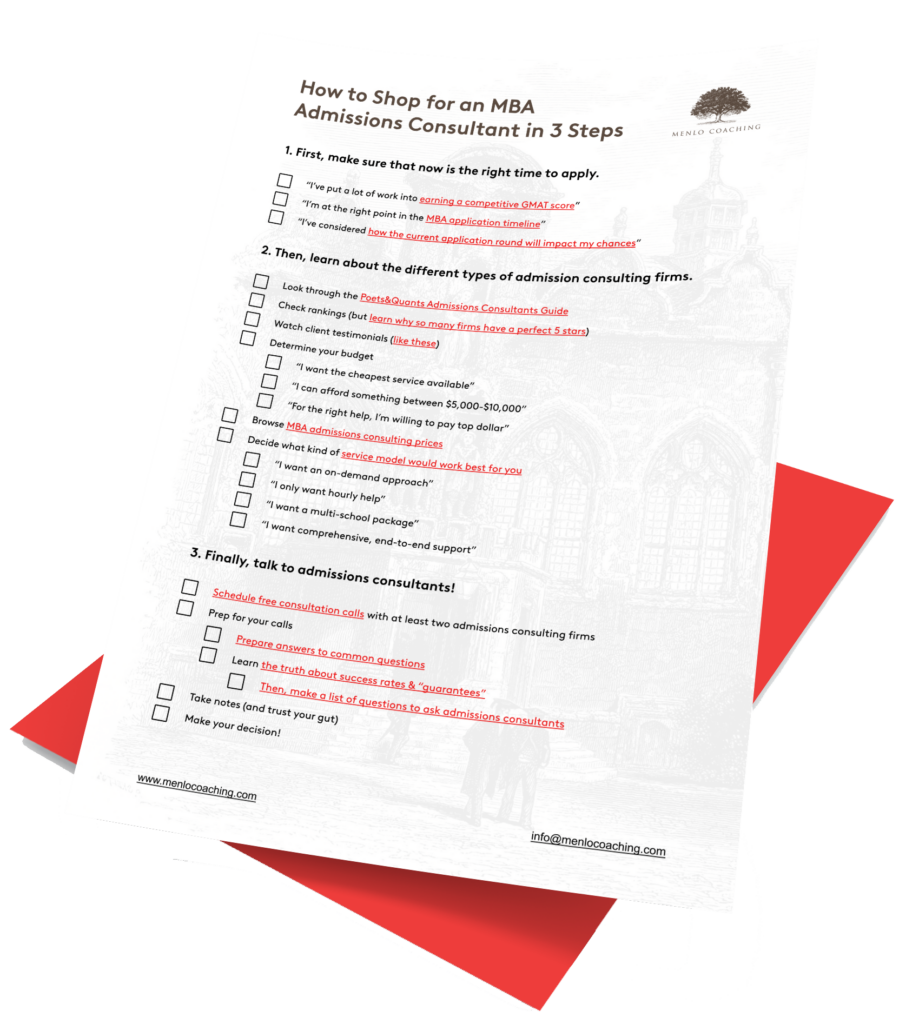At Menlo Coaching, we want you to have the best information about how to get into an MBA program. One excellent way to approach your applications is to consider what the MBA admission committee is looking for in an applicant. So our Founding Partner, David White, sat down with Pascal Michels, former director of IESE MBA Admissions (and now an admissions consultant here at Menlo Coaching!) to discuss how to impress MBA admissions committees (aka “AdComs”). They talk about what the AdCom really wants to hear, and they give insight on the general state of the relationship between the admissions committee and your MBA journey.
Want to learn more about the application process at IESE? Apply to IESE.
What Does the AdCom Look for in Applicants?
MBA programs often discuss their ability to help mold the future leaders of the business world. That may be a testament to their abilities, but it is vital that students understand that while each school will have its own specifics about candidate assessment, most MBA AdCom groups will have a picture of the ideal MBA applicant in their minds, or an applicant that matches the basic traits of a successful student. You should think about these traits when writing your essays and during the MBA admissions interview process, and you should try to portray yourself in a way that aligns with the AdCom’s expectations. More specifically, the AdCom wants someone who
Top MBAs are very intense, academically. While the subject matter may not be as complicated as rocket science or brain surgery, the workload is very high and people need to be comfortable with a lot of reading followed by thoughtful, in-class discussion. It requires expanded viewpoints and dealing with contrarian opinions. You will want to prove you are up to the task.
- Aims for realistic, low-risk career goals
AdComs evaluate an applicant’s future career risk by asking about their previous work experiences. They also look at potential risk as far as what post-graduation employment candidates seek and whether their expectations are realistic alongside their ability to land jobs, especially those that on-campus recruiters come to campus to recruit for. Finally, AdComs evaluate long-term career potential both in terms of financial and experiential contribution to the school and classroom discussions, and in terms of the moral and ethical health of the business world (working for NGOs or Green Tech for example). It is critical that you spin your previous work and your career goals to meet these expectations.
- Demonstrates a good fit with the culture of the school
This is where careful research of the institution will pay off. You need to figure out what the parameters of each top business school–and their MBA program–are and what kind of values they uphold. Then you can write essays in ways that demonstrate why you are a good fit and will be an asset to a campus’ collaboration spirit.
By paying attention to this set of criteria, you’ll be able to target your responses and tell the AdCom want they want to hear from their MBA applicants.
How to Shine, Despite Low Scores & Shallow Experience
Your MBA application may have weak points that you aren’t able to correct, either because the time has passed for you to be able to fix it, or because you cannot fix it during the year when you are applying. The former is usually related to low GPA or GMAT scores while the latter is related to a lack of professional experience.
If you are a candidate with a low GMAT score or a low GPA, you may be wondering if you have a shot at an MBA at a top school. While some programs do have cut-off scores for both the GMAT and GPA, it is also the case that a low score on its own is not a reason to not get into an MBA program. But it does require careful handling.
In the case of a low GPA or GMAT, one common mistake that applicants make is trying to defend why that score was low: being a bad test taker, having a personal tragedy during a crucial undergrad year, etc. Rather than defend low scores, you should be thinking about the traits admissions committees are looking for in applicants. In this particular case, MBA AdComs want reassurance that you can handle the academic rigors of an MBA program. It is worth it to speak directly to your academic abilities in a positive way that will reassure committees about your capabilities.
Pascal informs us that the average amount of work experience for IESE admits is five and a half years. Every year, however, he will see applicants that have a year and a half or two years experience and, with very few exceptions, the AdCom will summarily reject them. Remember that professional prospects are also important to MBA admissions committees and someone with that little experience simply is not tested yet. The most junior applicants that Pascal has been known to take in are those with two and half years of experience who are strategy consultants sponsored by their firms. These firms vouch for them and plan to rehire them after they graduate. Although, it is worth noting that even these are edge cases.
In general, it will be hard to impress MBA admissions committees without at least three years of experience. Unlike the previous example of a low GMAT score, it is hard to address this sufficiently in your application essays. When applying to MBA programs, research is key to figure out the level of experience that a school is comfortable with. Failing to do so and applying with an insufficient amount of experience will not only likely result in a rejection, it will also make you look like a “parachuter”—a term some MBA AdComs use to describe applicants who looked for top-ranked schools but did not put in the time to figure out whether they were a good fit.
Remember that your main goal, as an applicant, is to impress the admissions committee by addressing their three main concerns. Failing to do proper research will certainly raise warning flags about all three.
Gain insight into MBA admissions committee preferences and receive personalized guidance from our trusted MBA admissions consultants.


